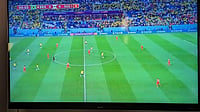In 2012, Cyrus Mistry, the replacement for the outgoing chairman of the Tata group of companies, Ratan Tata, was a surprise name for many.
At the time, Tata’s advice to Mistry was, “Be your own man.“
In October 2016, in a surprise move, Mistry was sacked as chairman of Tata Sons and Tata became the interim chairman of the salt-to-software conglomerate.
According to reports, Mistry, who was killed in a car accident on Sunday near Mumbai, was reluctant to take up the job but accepted the offer after some persuasion, including by Tata himself.
Cyrus was the sixth chairman of the Tata group and the second chairman who did not have the Tata surname. Cyrus joined the Tata Sons board as a director in 2006 and since then was representing the Mistry family on the board.
He was made chairman on the basis of his representation from Shapoorji Palonji, the largest shareholder in Tata Sons.
But within a few years, strains were visible in the relationship between Tata and Mistry.
This eventually resulted in India’s biggest corporate battle with Mistry moving the court against his removal. He did manage to win at the NCLAT which restored him as executive chairman of Tata Sons but the legal battle ended in 2021 with the Supreme Court ruling in favour of the Tata group.
Tata vs Mistry
While the real reason behind the sudden ouster of Mistry is still not clear, media reports suggested that it had been brewing for some time as Tata Sons were unhappy with his approach of selling non-profit businesses and concentrating only on cash cows.
In a statement, the board said it was decided "it may be appropriate to consider a change for the long-term interest of Tata Sons and Tata group".
While the board gave no detailed reason for the change, some media reports said there has been discontent with some of Mistry's actions, including asset sales.
The board had nine members, including Tata and Mistry. Six of them are said to have voted for removing Mistry and two abstained.
In the November 2011 announcement naming Mistry as his successor Tata said, “He has been on the board of Tata Sons since August 2006 and I have been impressed with the quality and calibre of his participation, his astute observations and his humility.”
However, cracks began appearing in the relationship between the two after Cyrus took over the chairmanship of the group.
Some attributed it to the lacklustre performance of some Tata Group companies, while others to Mistry's handling of crucial issues like the dispute with NTT DoCoMo and Tata Steel's sick assets in Europe.
Mistry, whose father Pallonji Shapoorji Mistry was called the 'Phantom of Bombay House' for the influence he wielded at the Tata Group headquarters, had begun a wide-ranging drive to “improve governance practices” at the group.
The legal battle was also a fight for his reputation. He believed he was doing what he thought was best for the company.
Mistry first went to the National Company Law Tribunal, which dismissed his petition challenging the manner in which he was ousted and ruled that the board and majority shareholders had lost confidence in him.
He, however, successfully appealed in the National Company Appellate Tribunal, but the Supreme Court sided with the Tatas.
After his exit from Tata Sons, Cyrus did not take back management control at Shapoorji Pallonji and Co. He instead carved out something for himself. Cyrus floated a venture capital fund, Mistry Ventures, to back startups.
NTT Docomo case
It is said that Ratan Tata was unhappy about Mistry's tough stand to get embroiled in a legal battle with NTT Docomo.
It was Tata who had promised the Japanese firm to pay half the amount of its investment if it left the business making a loss.
In 2009, NTT DoCoMo partnered with Tata to form Tata Teleservices but the Japanese partner decided to exit the alliance in 2014, and wanted the Tatas to either find a buyer for its 26 per cent stake or buy it out. As per reports, Tata could not find a buyer and did not buy back the DoCoMo share.
In 2016, the London Court of International Arbitration ordered Tata to pay $1.17 billion in damages to NTT DoCoMo.
Sale Of Ailing Assets
Reports say Mistry’s intention of selling the ailing UK-based steel producer, which had been Tata’s proud acquisition after a bitter battle with ArcelorMittal, was one reason for his ouster.
Mistry, in fact, had made a number of asset sales during his tenure to bring down the debt burden.
As per a report in The Week magazine, In 2014, Tata Power sold 30 per cent stake in its coal mine in Indonesia for Rs 3,100 crore. In April 2016, Tata Chemicals sold its urea plant in Uttar Pradesh to a Norwegian company for Rs 2,600 crore. In May, Tata Communications sold the majority stake in a data centre it owned. In June, Tata sold Neotel, a telecom company it owned in South Africa, for Rs 3,000 crore.
The Last Straw
Taking decisions without informing the parent company also seemed to be one of the reasons for Mistry’s ouster.
In June 2016, Mistry finalised Tata Power's acquisition of Welspun's solar farms for $1.4 billion. It was said to be without the approval of Ratan Tata and other key shareholder.
Several of Mistry’s decisions, including the disposal of some of Indian Hotels Co’s overseas properties and especially the move to shut the UK steel operations, did not go down well with Tata Trusts.
Many were considered Ratan Tata’s legacy that helped the group revenues top $100 billion.































